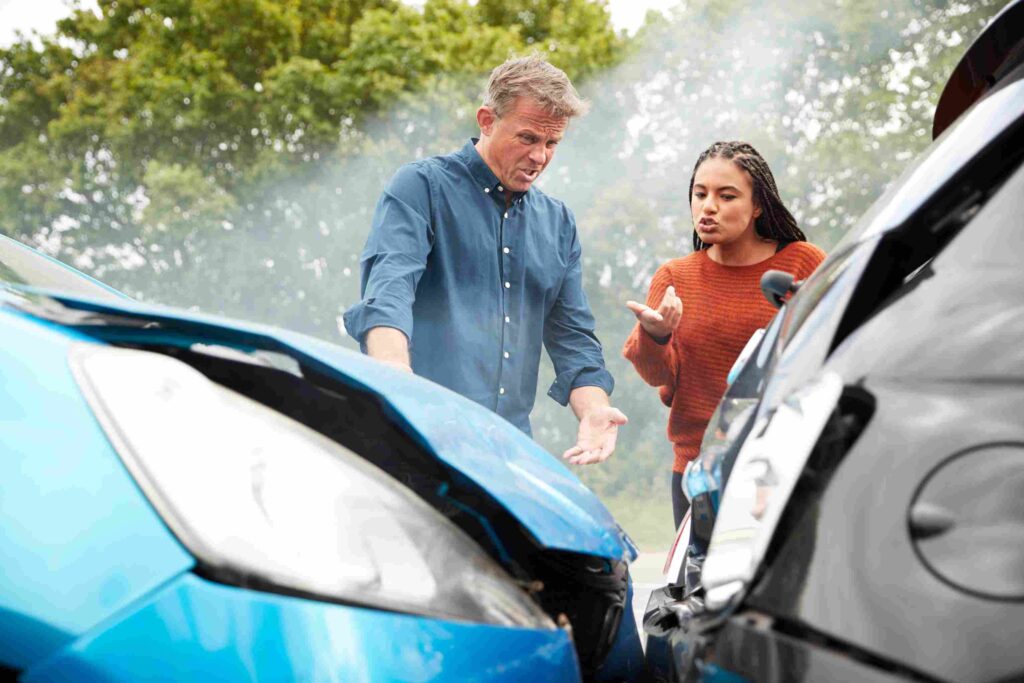Florida requires all drivers to drive safely and carefully. Even if you take all the right steps to stay safe, accidents happen and can lead to serious and life-threatening injuries.
If a negligent or reckless driver causes your accident and injuries, you may have the right to file a claim and receive compensation. The circumstances of the accident determine liability and what you will be eligible to recover.
We recommend that you contact our legal team immediately after an accident to discuss your situation. At Zimmet & Zimmet, we can help you with each step of the process while protecting your rights.
The Four Elements of Fault in a Florida Car Accident
Establishing fault in a Florida car accident requires four things to be established. These include the following:
- Duty of care. It is necessary to show that the responsible driver had a legal duty of care to the injured party.
- Breach of duty. You must have evidence showing the responsible driver breached the duty of care through intent or negligence.
- Causation. The breach resulted in the accident.
- Damages. The victim experienced expenses and losses because of the accident caused by the breach.
At Zimmet & Zimmet, our legal team knows what must be done to prove these four elements. We will use the factors below to help establish fault and fight for your full compensation.
Factors Considered When Establishing Fault in a Florida Car Accident
An insurance company may use different methods to determine fault. Common elements considered include witness testimony, physical evidence, and traffic citations.
In some cases, the police and insurance companies will examine and assess the physical evidence in your accident case. The type of accident that occurred and traffic laws will be considered. Inspectors will examine vehicle damage and evidence on the road, such as skid marks. Any photographic or video evidence will be considered, too.
Traffic citations are also considered when investigating an auto accident. If one driver violated the law during the accident, they would be at fault. Common citations issued during auto accidents are for running stop signs and speeding. When establishing fault, you must contact the police and stay at the scene.
Insurance companies and police will take statements from any witnesses to the incident. Be sure that you do not accept fault (in any way) when talking to anyone at the accident scene. This can be used against you when you file a claim.
Understanding No-Fault and Comparative Fault in Florida
Florida follows no-fault laws. All drivers must have PIP (personal injury protection) coverage. The minimum required amount is $10,000, covering 80% of your medical costs and lost wages.
Unfortunately, if you experience a severe injury, the cost of treatment may be significantly higher than $10,000. In these situations, medical bills that exceed your no-fault coverage can be paid by your health insurance or the at-fault party’s bodily injury coverage. You may also receive compensation from your uninsured/underinsured motorist coverage.
To file a legal claim for compensation after a car accident, you must prove that the other driver owed you a duty of care that was breached and that the breach caused your accident. You must also show you experienced harm or damage because of this.
Florida is also a comparative fault state. If you are partially responsible for the accident, the damages you receive are reduced by your percentage of fault.
Understanding the Statute of Limitations for Florida Car Accident Claims
The statute of limitations is the amount of time an accident victim has to file a lawsuit for it to be accepted by the court. It will only be accepted if you file your claim within the set time limit.
You must file a personal injury lawsuit in Florida within four years of the accident. If your injuries were not immediately obvious, you must file within four years of when a doctor confirmed your injury.
FAQs
What steps should you take after a Florida car accident?
After being involved in a car accident, contact the police immediately. Seek medical treatment, even if you feel fine. Take photos of the accident scene, damage to your vehicle, and visible injuries. This can be used as evidence if you file a claim.
Do you have to file a claim right after your auto accident?
There is no requirement to make you file a claim immediately after an accident. However, it is best not to wait too long to do this. You have four years to file a claim, and after this time passes, you will lose the right to do this. After an accident, evidence can be destroyed or lost, and witnesses’ memories may fade.
What type of compensation can you receive in a Florida accident claim?
The specific compensation you can recover depends on the specifics of your case. While this is true, common types of damages recovered include the following:
- Past and future medical costs
- Lost wages and lost earning capacity
- Loss of enjoyment of life
- Home health care services
- Emotional distress
- Pain and suffering
- Cost of lost services
- Child care expenses
- Property damage
It may also be possible to receive punitive damages. These are awarded in cases where the at-fault party is guilty of intentional misconduct or gross negligence.
We Can Help with Your Florida Car Accident Claim
Filing a claim after an auto accident can be confusing and overwhelming. If you are trying to recover from injuries, it makes a difficult situation even worse.
At Zimmet & Zimmet, you can count on our experienced and professional legal team to take over the legal process, file a claim on your behalf, and negotiate with the insurance company with your best interests in mind.
The first step is to call our office to schedule a free initial consultation.
Read More
Florida Passenger Seat Car Accident Injury Claims | Can I Sue Both Drivers?











